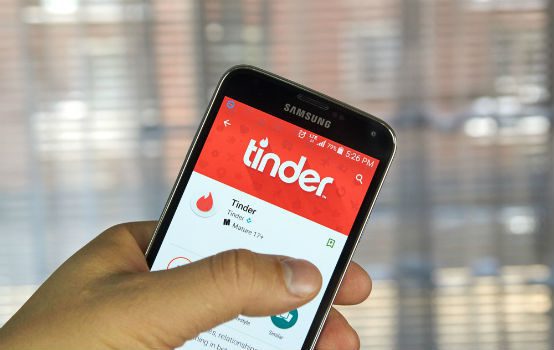Republicans Need Voters to Swipe Right

In the lead-up to the midterm elections, Democratic House candidates and their supporters took an unorthodox route to voters’ hearts: the dating app Tinder. In one extreme example, Suraj Patel, a candidate who ran in a New York Democratic primary race, invested $5,000 in Tinder-focused campaigning, which he colorfully termed “tinder-banking.” On Twitter, folks disparaged the tactic as “disgusting”and “deceitful,” arguing that it represented an inappropriate intrusion of politics into the romantic domain. And since Republican candidates have all conspicuously avoided the strategy, they seemed to agree.
But to think the romantic can be separated from the political is foolish. The two are inextricably linked.
History offers a glamorous welter of romantic relationships that demonstrate this. There was King David’s union with Bathsheba, the elopement of Helen with Paris of Troy, and the ill-fated marriage of Henry VIII of England with Anne Boleyn. The first began with Tinder-esque lust and ultimately produced King Solomon. The second precipitated an epic war that flooded ancient Greece with fraternal blood and inspired the literary touchstone of Western civilization. The third split Christendom and prolonged the survival of the House of Tudor. In short, these couplings were dramatic, romantic, and emphatically political. However, what made them political wasn’t their position at the center of pivotal historical events—that merely magnified their political character. They were political because the very nature of romance and politics makes overlap inevitable.
In democracies, this overlap is more obvious than in any other political system. To vote for someone is to effectively identify oneself with another—to say that a candidate could be one’s legitimate representative. Likewise, according to the philosopher Robert Nozick, “The intention in love is to form a we and to identify with it as an extended self, to identify one’s fortunes in large part with its fortunes.” In politics, this we manifests in shared ideals and experiences of legislative success and failure. This identity typically grows to encompass not only a candidate, but whole political parties and movements, creating a Democratic we, a Republican we, a Libertarian we, and so on. That the politician is a distant figure to voters does not negate this parallel—for even in love, the beloved remains a necessarily separate, distant person.
In his infamous love letters to Hannah Arendt, the German philosopher Martin Heidegger wrote, “Love transforms gratitude into loyalty to ourselves and unconditional faith in the other.” This directly mirrors the experience of constituents whose initial support matures into steady loyalty to a politician, even though all politicians are, by nature, separate from the voter. Love is profound precisely because it involves a substantial, life-altering bond between people who, despite their intimacy, will forever be separate. As Heidegger puts it, “A human fate gives itself over to another human fate.” This is as much the nature of love as it is the nature of politics.
Unfortunately, this relationship between politics and romance isn’t popularly acknowledged. For example, on acclaimed television shows like Seinfeld and Friends, romance often involves seeming non-entities who flutter through characters’ lives without effects that endure for longer than a season. Indeed, a prevalent notion of romance is that it is essentially an apolitical social modality. To suggest either that the relationship is itself political or that its viability relates to broader relationships—for instance, whether a person’s we includes particular candidates or policies—is impolite, especially among conservatives who respond to such suggestions with scorn.
In 2017, for example, when the digital dating platform OKCupid allowed users to indicate their support for Planned Parenthood by pinning a pink badge on their dating profiles, articles in conservative publications argued that such activity was “counterproductive” and “polarizing.” One strident Fox News op-ed even declared that “Women deserve better.” These arguments all entail the notion that romance is or should be in a different sphere than politics—a view that implies either a romance without loyalty or a politics without sacrifice.
This is an unsound notion. To cling to it despite reason to the contrary is to spurn fertile soil where conservative political feeling could take root and blossom. When Democratic candidates campaign on Tinder and win, Republicans persist in this delusion at their own peril. If conservatives don’t want to see a repeat of what just happened to the House during the midterms, they need voters to swipe right.
Michael Shindler is a Young Voices contributor, research fellow at the Consumer Choice Center, and writer living in Washington, D.C. His work has been published in outlets including The American Conservative, The American Spectator, and National Review Online. Follow him on Twitter @MichaelShindler.
Comments